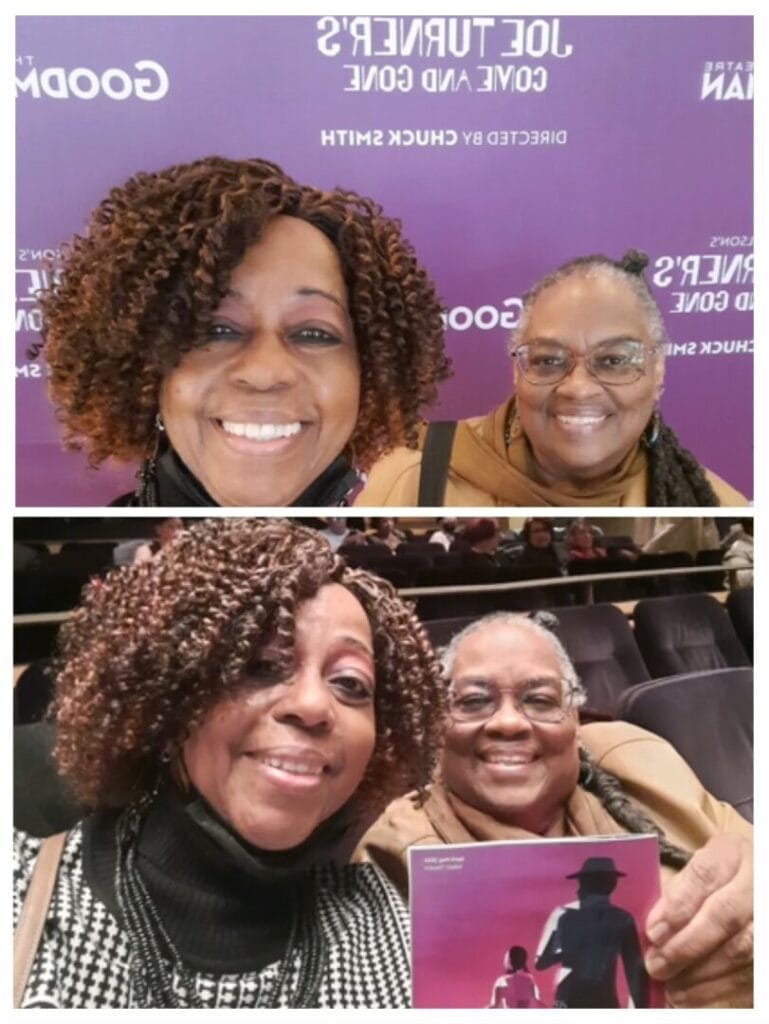Actor A.C. Smith is starring in another August Wilson play, directed by the esteemed Goodman Theatre Resident Director Chuck Smith.
I had a short chat with A.C. Smith about his role as Herald Loomis in the ongoing production of “Joe Turner’s Come and Gone.”
The play is one in the canon of the late award-winning playwright August Wilson—part of his 10-play American Century Cycle exploring the heritage and experience of African Americans, set in his hometown of Pittsburgh, Pennsyvania. decade by decade, over the course of the 20th century.
“Joe Turner’s Come and Gone” is set in 1911 in a boardinghouse that is refuge for many itinerant travelers.
Herald searches the country with his young daughter to find his estranged wife. But first, he must regain a sense of his own heritage and identity in this story of spiritual and emotional resurrection. A journey of self-discovery leads to salvation in this major revival of the Pulitzer Prize-winner’s masterwork.
A bit of background on Joe Turner and the play’s title: “Joe Turner’s Come and Gone” is set in the second decade of the 20th century and chronicles the lives of a few freed formerly enslaved African Americans in the North and deals with the conflicts of racism and discrimination.
The name Joe Turner is used as more representational as opposed to literally. It represents a racist, white, Southern man when he kidnaps Black men.
And to this city’s credit, we have the hard working A.C. Smith, who grew up on the South Side and attended DuSable High School, later graduating with a B.A. in performing arts from Columbia College in 1986.

And he has worked consistently since 1982 while in college— appearing not only in all of Wilson’s plays at the Goodman, under the direction of Chuck Smith, who he says is a good friend, and was a former instructor at Columbia College—but also in other plays around the city and suburbs at other venues.
His role as Herald in “Joe Turner’s Come and Gone” has him searching for a sense of belonging.
Speaking of illegal servitude, which has caught Herald up in the play, before he sought lodging, A.C. Smith said: “Joe Turner hunted Black men down and kept them working in the fields from sunup to sundown. Their whole world is gone.”
He continued: “I put in my seven years, and on his [Turner’s] birthday, he let me go.” And this begins the search for his wife, with his daughter, Zonia, in tow.
A. C. Smith says that this role isn’t really different from his other Wilson roles. “I have done the whole canon, and I know the style, I know the language. I’m searching to find who he [Herald] is, finding out who he was and who he is.”
Goodman Resident Director Chuck Smith said: “He [Herald] needs to know what happened to her, before he can move on with his life.”
He continues on about the play’s themes. “This play takes place in 1911, and the whole Black race was in transit, leaving the south and going somewhere else. Everyone was on their way someplace.”
Throughout the play, different folks come to stay in the boardinghouse for better living up north.
There’s the husband and wife owners, Seth and Bertha. Seth (Dexter Zollicoffer) is strictly business, $2 a week plus extra 25 cents for meals—that are warmly prepared by Bertha—is his mantra. Two single women come to stay—Mattie (Nambi E. Kelley) is looking for her husband who just walked out on her, and Molly, independent and sassy, takes no prisoners where men are concerned. However, she has no qualms about taking off with another boarder Jeremy, a mostly jobless guitarist.
Bynum believes in roots and spells and optimistic endings. Rueben (Jean-Luc Nazaire) is a young boy who hangs around the boardinghouse spinning yarns with Zonia. Along with Selig, (Gary Houston) a white man who sells dust pans and also works as a modified bounty hunter, they comprise an eclectic mix of tenants—all with their eye-popping stories.

gold jacket, and Pastor Olivia Johnson, Generational Blessings Worship
Center, enjoy a Saturday matinee at the Goodman Theatre.
In one scene, Herald is overcome with grief and optimism when he is felled by the spirit, in a show of emotions that finds him prostrate on the floor—further adding mystery to his imposing, hulking, towering, acerbic personality.
Another unique scene in the play is a Juba dance in which all the tenants participate in a rousing display of unity— a surprise for both the tenants and audience.
But it’s finally time for Herald to meet up with his wife, but with an unexpected resolution.
As the play deals with transition, A.C. Smith says his feet are firmly planted and working with Chuck Smith is a reunion of sorts. “I have been doing very well since I began acting,” he said while offering that he wished local Black theatre companies were operating on an equity theatre basis, which benefits actors as far as contracts are concerned. This way, he could perform in more plays within the Black theatre community.
The Goodman Theatre is located at 170 N. Dearborn St. For information about “Joe Turner’s Come and Gone,” visit Goodman.org. It is running through May 12.






